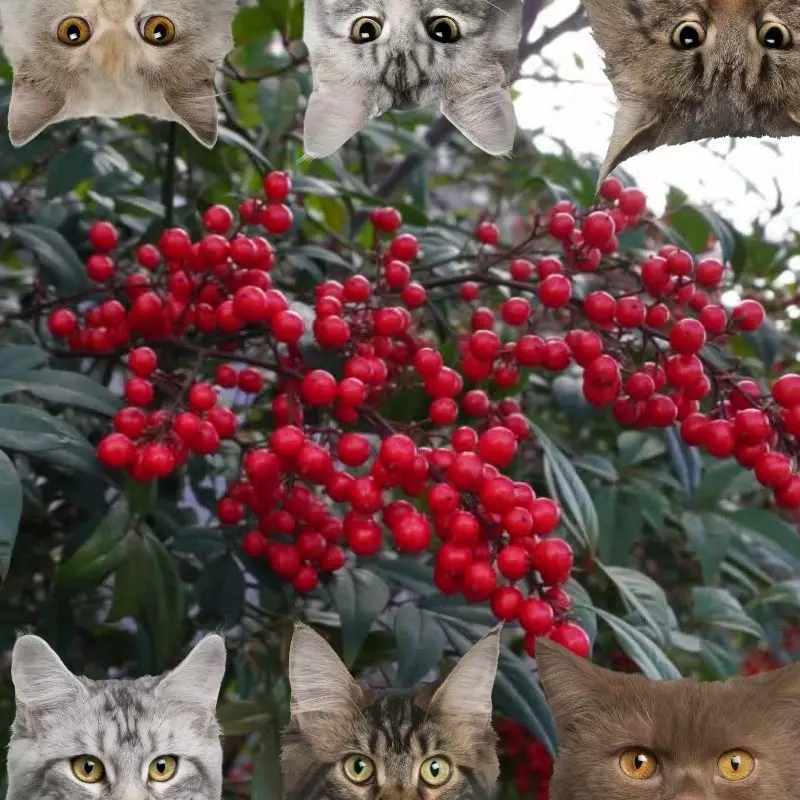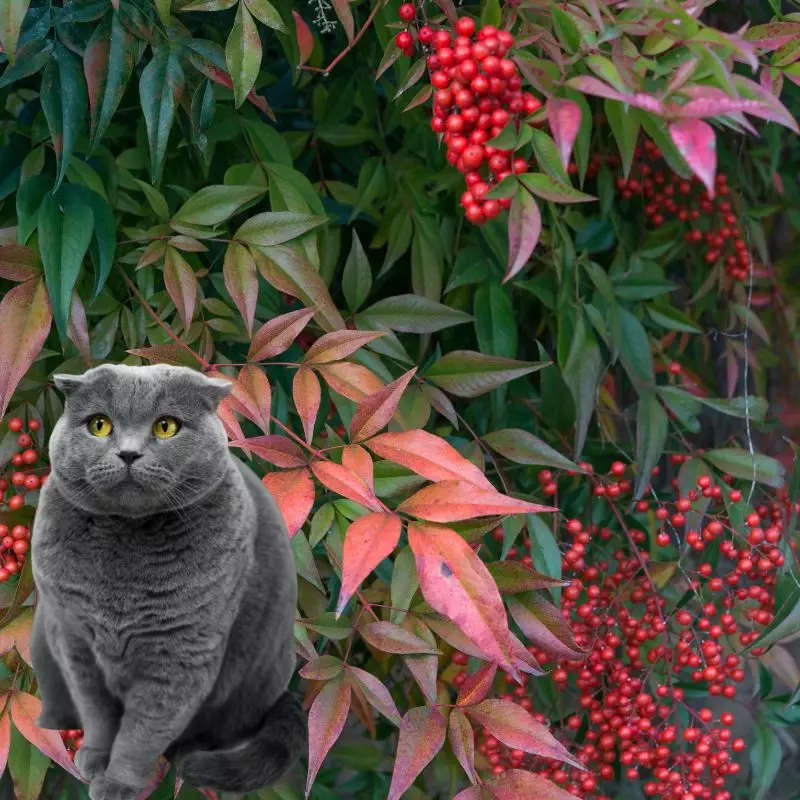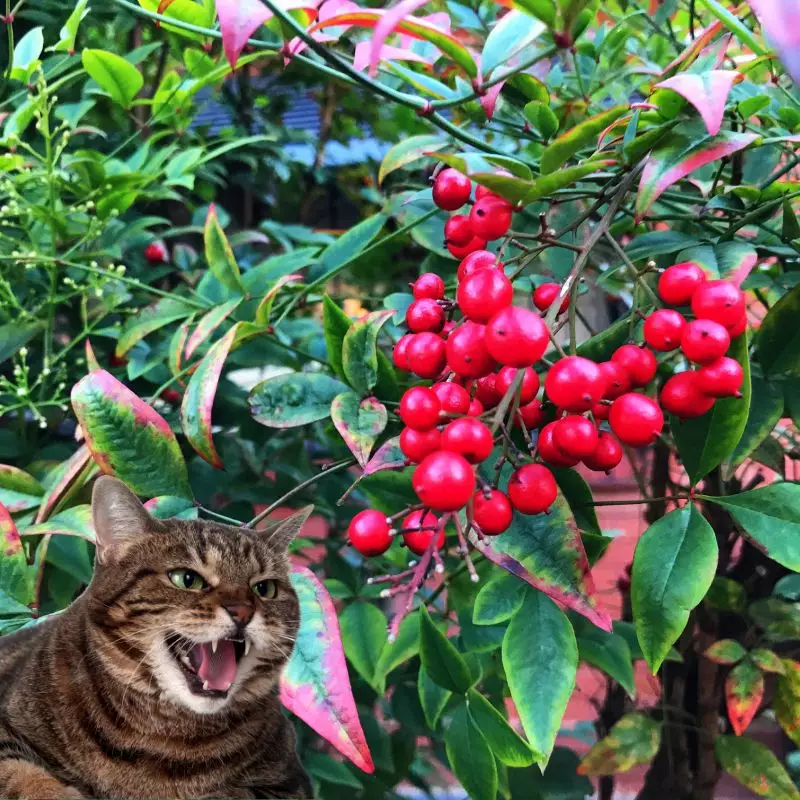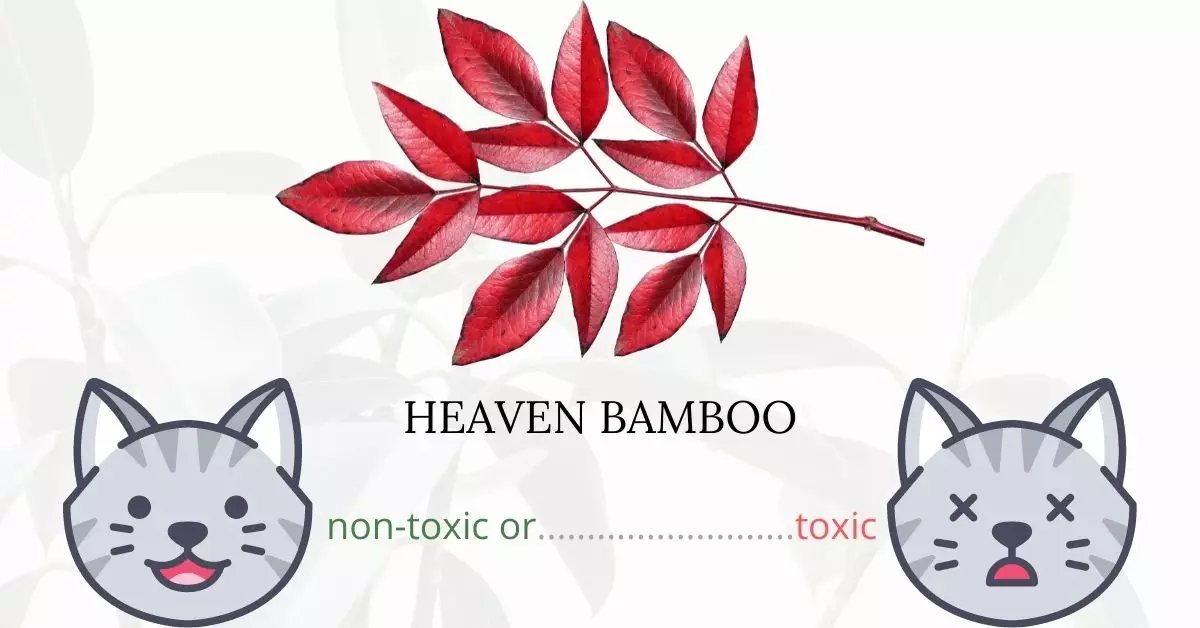Yes, Heaven Bamboo, also known as Sacred Bamboo or Nandina, is toxic to cats. This flowering plant, recognized for its unique foliage, contains cyanogenic glycosides. When a cat consumes any part of Heaven Bamboo, these glycosides can be broken down, leading to the production of hydrogen cyanide. This compound disrupts the cat’s cells by preventing the formation of ATP (adenosine triphosphate), which is vital for providing energy to each cell.
This article has been crafted in collaboration with a team of experienced DVMs (doctors of veterinary medicine). With their expert insights, we ensure that our readers receive accurate and up-to-date information about the potential risks various plants, such as Heaven Bamboo, pose to cats. Furthermore, our team has extensively researched high-authority websites, including ASPCA and PetMD, to provide a comprehensive understanding of each plant’s effects on our feline friends.
Clinical Signs of Heavenly Bamboo or Nandina Poisoning in Cats

When a cat comes into contact with, inhales the scent of, or consumes any part of the Heavenly Bamboo or Nandina plant, it may manifest several clinical signs due to the presence of cyanogenic glycosides in the plant. Understanding these symptoms and their underlying causes can help cat owners respond promptly and seek timely veterinary care:
- Bright Red Colored Mucus Membranes: This is an indication of oxygen deprivation in the bloodstream. The cyanogenic glycosides release hydrogen cyanide upon ingestion, which can hinder the blood’s ability to transport oxygen efficiently.
- Dyspnea (Difficulty Breathing): This symptom arises as the cat’s body tries to compensate for the reduced oxygen levels, causing labored breathing.
- Hyperventilation: A result of the cat’s attempt to intake more oxygen in response to the initial oxygen deprivation caused by the toxins.
- Respiratory Failure: Prolonged exposure to or ingestion of the plant can lead to a complete shutdown of the respiratory system due to the escalating effects of cyanide poisoning.
- Coma: A severe reduction in ATP production, which is vital for cellular function, can lead to a state of unresponsiveness or coma.
- Seizures: The brain, being highly sensitive to changes in oxygen levels, may react with seizures due to reduced oxygen supply.
- Loss of Coordination: Cyanide affects the neural pathways, making it challenging for the cat to maintain its balance and normal movement.
- Weakness: A decline in ATP production means that cells don’t get the energy they need, leading to general fatigue and muscle weakness.
If your cat shows any of these signs after coming into contact with Heavenly Bamboo or Nandina, it is imperative to seek immediate veterinary care. The earlier the intervention, the better the chances of recovery.
First Aid and Treatment of Heavenly Bamboo or Nandina Poisoning in Cats

Since there is no specific antidote for heavenly bamboo or nandina poisoning in cats, the typical treatment will be alleviating the symptoms that your cat is experiencing. Taking your cat to the vet for appropriate and efficient therapy is important.
Veterinary treatment may include administering activated charcoal, intravenous fluids, and performing gastric lavage or pumping your cat’s stomach. Other medications needed to alleviate your cat’s symptoms may be also prescribed by the veterinarian as he may deem necessary.
Recovery from Heavenly Bamboo or Nandina Poisoning in Cats

If your cat ingested a large quantity of heavenly bamboo, the outlook of his or her recovery will be bleak. Nonetheless, as long as your cat was brought to the vet immediately and was provided prompt medical care, he or she will have a high chance of surviving.
Prevention of Heavenly Bamboo or Nandina Poisoning in Cats
It is safer to keep your cat inside your house to reduce the risk of exposure of your cat to heavenly bamboos and other poisonous plants in the neighborhood. As a cat owner, be responsible to do your research about toxic plants and take preventative measures to avoid intoxication.
If you love plants but have cats at home, check out these lists:





